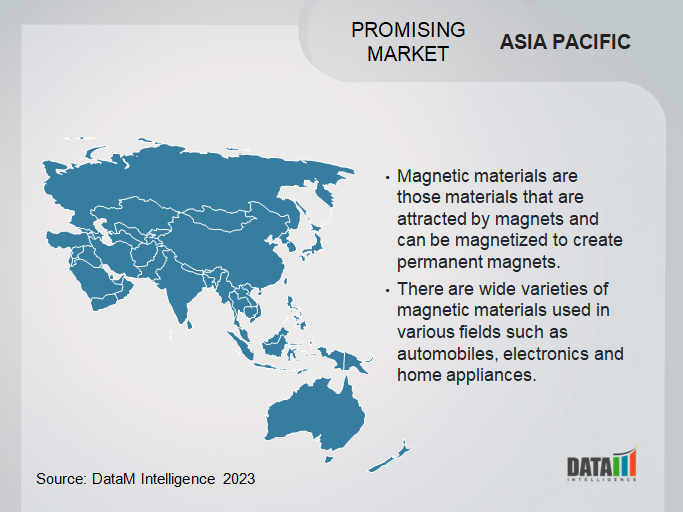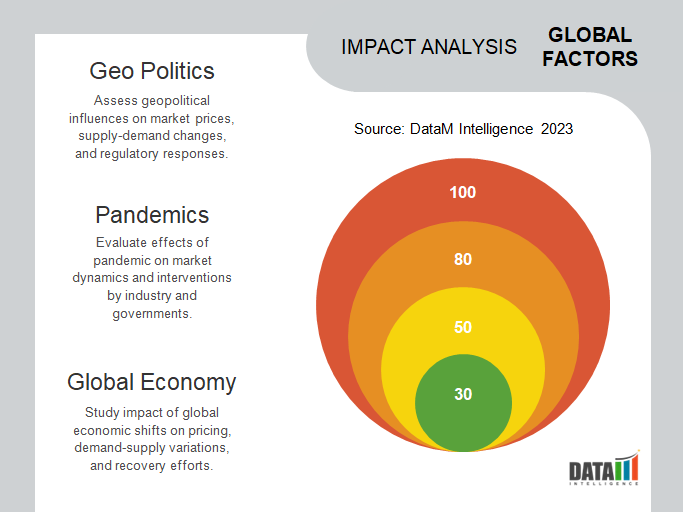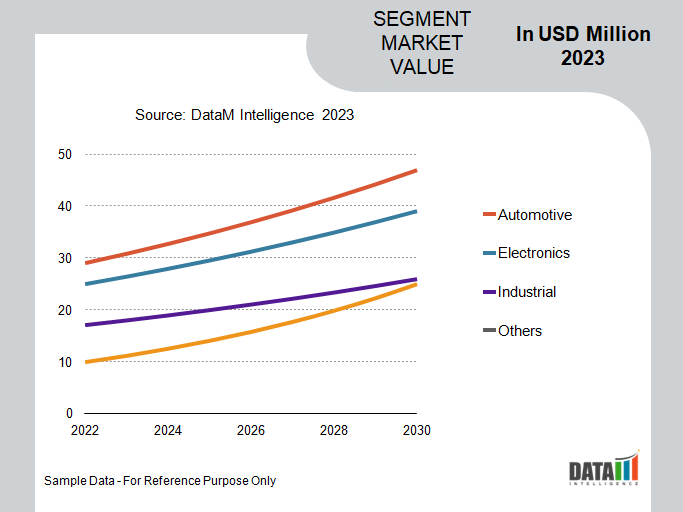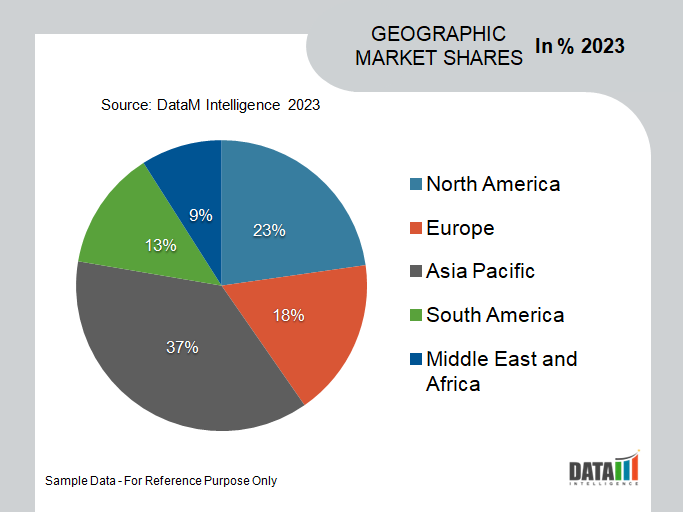Market Overview
A Report by DataM Intelligence estimates the Global Magnetic Materials market to grow at a high CAGR during the forecast period 2024-2031. The market is expected to grow because it becomes important in different industries like Automotive, Electronics, Industrial. The competitive rivalry intensifies with Hitachi Metals Ltd, Daido Steel Co. Ltd.., Molycorp Magnequench, and others operating in the market.

Magnetic materials are utilized to create and distribute electricity and, in most cases, in the appliances that use that electricity, such as televisions, PCs, CD players, loudspeakers, and others. They are used for the data storage on video and audiotape as well as on computer disks.
Moreover, they are used in body scanners and other machines where they are attached to or implanted into the body.
Market Scope
| Metrics | Details |
| Market CAGR | High |
| Segments Covered | By Type, By Application and By Region |
| Report Insights Covered | Competitive Landscape Analysis, Company Profile Analysis, Market Size, Share, Growth, Demand, Recent Developments, Mergers and acquisitions, New Product Launches, Growth Strategies, Revenue Analysis, and Other key insights. |
| Fastest Growing Region | Asia Pacific |
| Largest Market Share | North America |
To know more insights Download Sample
Market Dynamics
Increasing demand for miniaturized electronic devices is expected to drive the magnetic materials market
Miniaturization is the manufacturing of smaller optical, mechanical and electronic products and devices, which require the development of improved magnetic materials. Manufacturers primarily focus on developing miniaturized electronics with low weight, low volume, and low power consumption rates.
In recent times, the miniaturized electronic devices requirement has significantly increased. For instance, manufacturers focus on developing and delivering IC chips with superior performance and lesser power consumption.

Moreover, miniaturization has also been used in medical electronics such as pacemakers and defibrillators.
Fluctuation in raw material prices is expected to hinder the magnetic material market
The global magnetic materials market growth is expected to be hampered by unexpected fluctuations in raw material prices that destabilize the supply chain and pose a challenge for manufacturers.
They are influenced by the general availability of raw materials, geographic distribution, ease of recovery from mined ore, and open market trading. For instance, out of 120+ elements, only 36 are potentially useful to form a magnetic material, and only a few can produce a magnetic output.
Market Segmentation Analysis
Based on type, magnetic material market is segmented into magnetically hard material and magnetically soft material.
Magnetically hard material is expected to dominate the magnetic materials market
Magnetically hard materials are magnetized using an external solid magnetic field. They remain magnetized indefinitely unless they are demagnetized by an opposing magnetic field, raised above their curie temperature or allowed to rust.

Magnetically hard materials create permanent magnets made from alloys generally consisting of varying amounts of aluminum, iron, nickel, cobalt and rare earth elements. Permanent magnets are difficult to magnetize, unlike magnetically soft materials.
Hard magnetic materials have a wide range of applications in various sectors such as automotive, telecommunication, data processing, consumer electronics, electronic and instrumentation and many others.
Market Geographical Growth
Asia-Pacific is the largest and fastest-growing market for magnetic materials owing to high demand from major markets, such as China, India, and Japan. The growing automotive industry in the region is also driving the need for magnetic materials. The trend is anticipated to continue over the forecast period based on rapid industrialization in emerging economies such as China, India and Japan. China is projected to be a more lucrative market owing to abundant rare earth metal deposits and a large end-use industry base.

Companies and Competitive Landscape
The magnetic materials market is moderately competitive with presence of local as well as global companies. Some of the key players which are contributing to the growth of the market include Hitachi Metals Ltd., Daido Steel Co. Ltd., Molycorp Magnequench, Shin-Etsu Chemical Co. Ltd., and TDK Corp., AMES, Mate Co., Ltd., Melrose Industries PLC, SG Technologies, Sumitomo Metal Mining Co., Ltd., Toshiba Materials Co., L. among others. The major players are adopting several growth strategies such as product launches, acquisitions, and collaborations, which are contributing to the growth of the Magnetic Materials market globally.
Hitachi Metals Ltd.
- Hitachi Ltd. is a leading global manufacturer specializing in high-grade metal products and materials, primarily for the automotive, industrial, energy, and electronic sectors. The company operates through key segments such as specialty steel products, magnetic materials, functional components, and electronic devices.
- Hitachi Metals is particularly renowned for its magnetic materials, which are widely used across electronics, automotive, industrial machinery, and renewable energy applications. Their product portfolio includes both magnetically soft and magnetically hard materials.
- Their focus on R&D, combined with strategic investments, enables them to deliver products that meet stringent demands for precision, performance, and durability, reinforcing
Key Developments:
- Hitachi Ltd. has announced its plan to sell the Hitachi Metals business unit, including its Magnetic Materials segment, which holds two original patents to produce sintered NdFeB magnets and Neo Materials.
The global magnetic materials market report would provide an access to an approx. 53 market data table, 52 figures and 228 pages.


